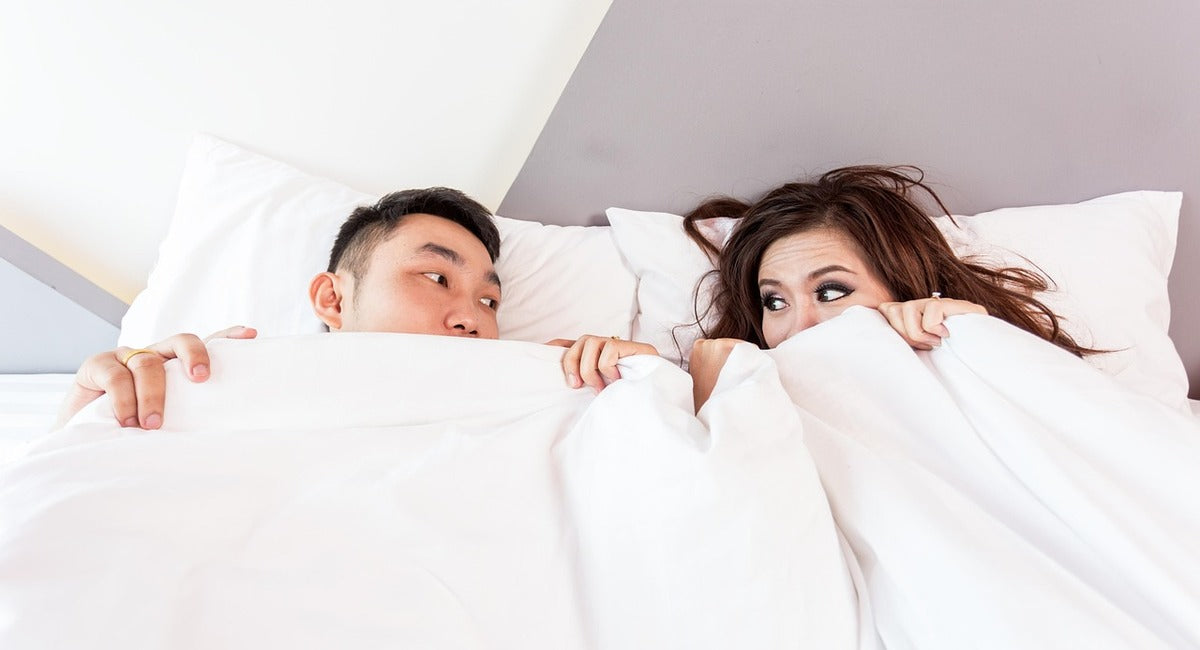
Do Women Need More Sleep Than Men?
|
Time to read 4 min
This store requires javascript to be enabled for some features to work correctly.
Written by: Editorial Team
|
Time to read 4 min
According to Healthline, women tend to sleep slightly longer than men. However, the difference is pretty minimal, at an estimated 11 to 13 minutes longer - which hardly calculates to a more substantial rest.
The recommended number of hours of sleep for a healthy adult is 7 to 9 hours per night, with many struggling to get the minimum within this bracket.
The health experts who calculated the disparity in sleep between men and women cited several factors as to why women may sleep slightly longer than men.
Changes in hormones - namely pregnancy, menstruation, and menopause - can increase feelings of fatigue or trouble falling asleep. However, it may be detrimental to your overall sleep schedule to adapt or even stick with the number of hours of sleep you plan to get.
Those menstruating often report lighter, more disturbed sleep compared to the rest of the month. For that reason, experts in menstruation recommend getting enough sleep to compensate for the tiredness and fatigue they face on their period - which means, for most, an extra hour or two would go a long way to make a difference in health and overall mood during their time of the month.
A decrease in quality of sleep is one of the most commonly reported symptoms during menopause. Although John Hopkins Medicine says the minimum 7-9 hour window for sleep isn't set in stone, especially during menopause, the medical institution also recommends alternative therapies to tackle tiredness and sleep deprivation.
These include, but are not limited to:
In some cases, any length of sleep will not be enough to tackle the feeling of tiredness and fatigue during menopause. This is where alternate treatments would prove most useful.
Sleep disruption and overall tiredness and fatigue due to the frequent hormonal changes during pregnancy is an almost universal experience. The NHS does not recommend a set time on how much extra sleep you need during pregnancy, and merely advises getting as much sleep as you can, when you can can.
The NHS also recommends ensuring a healthy diet with extra exercise to help tackle tiredness, and seeking medical advice if fatigue and sleeplessness is persistent, especially if it is affecting your mood and overall quality of life during the day.
While there is no specific separate recommendation for hours of sleep per night for women compared to men, it is generally thought that women will need more sleep than men at least on occasion.
Most women will experience periods, pregnancy, or menopause during their lifetime, and it is generally advised across the board that these times are far more tiring than normal, and more sleep is required. Additionally, women also report more sleep disturbances - whether they're due to gender, medical sexism, or social differences.
Getting more hours of sleep would benefit most women, but other steps to take to combat tiredness - such as exercise, diet, and recommended medications - can help improve these health problems where sleep cannot.
Women are more likely to experience sleep disturbances than men.
Periods, menopause, pregnancy, and other major hormonal changes require more sleep.
A healthy waking lifestyle is almost equally important to achieving the feeling of being fully rested.
No, seven to nine hours of sleep is the blanket recommendation for all healthy adults. Hormonal events often demand different hours of sleep, however.
There is no set number of hours of sleep for pregnancy, mainly due to the fact sleep disruption is more common than not. The advice from doctors is simply to sleep when you need to.
The Myza Editorial Team
The Myza Editorial Team works together to create and curate The Sleep Journal, a series of blog posts designed to help our customers with frequently asked questions and curiosities regarding everything in the world of sleep, from sleeping positions to skin and hair care. We also provide regular shopping guides, interviews, and reviews to provide insight into our hand-picked brand collaborations and the benefits they have to offer.
Receive 10% off your first order when you subscribe to our newsletter




